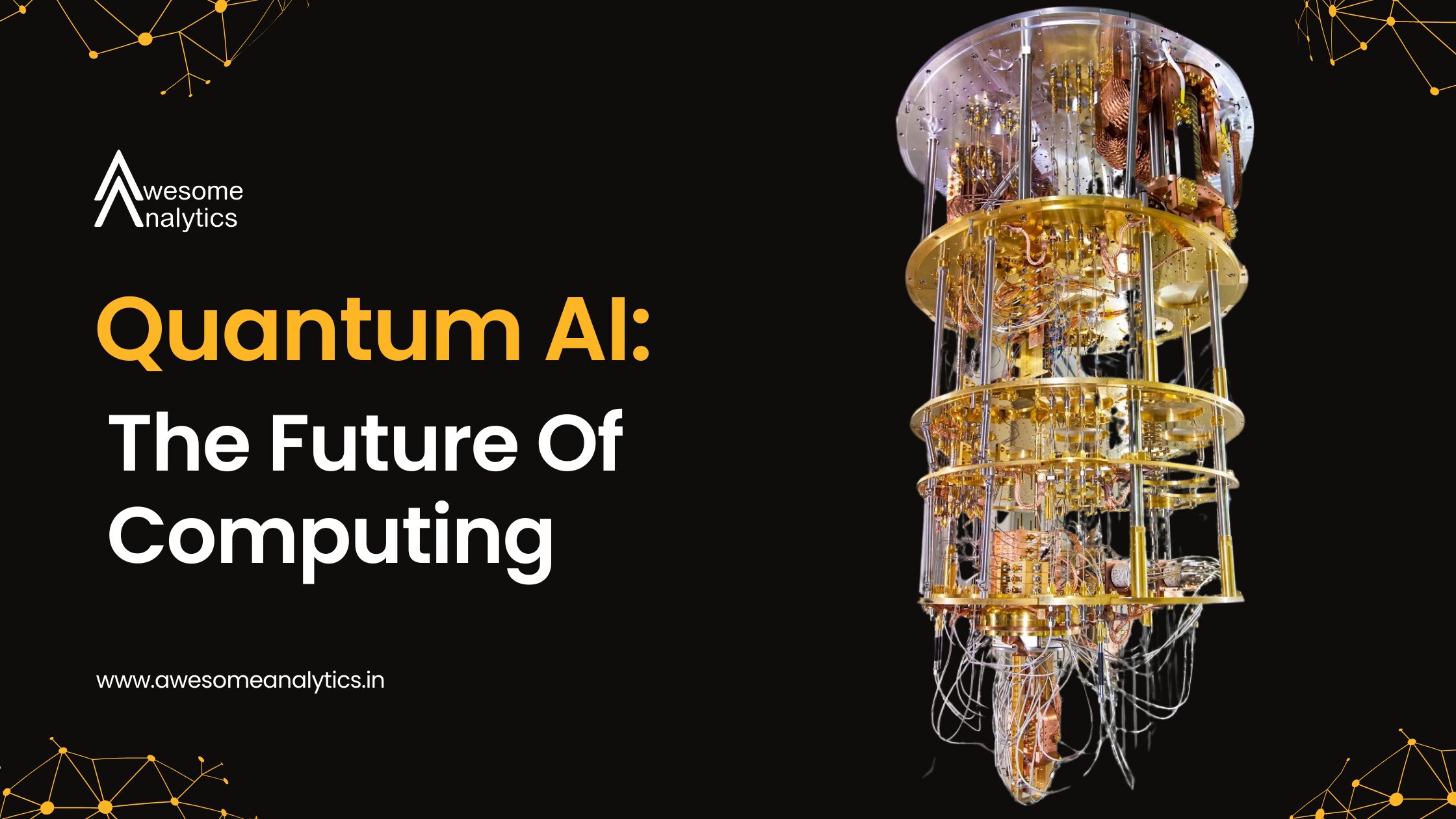1. What is Quantum Computing?
Quantum computing is a revolutionary approach to computing. Traditional computers use bits that are either 0 or 1, but quantum computers use qubits, which can be 0, 1, or both at the same time. This unique ability allows quantum computers to process data much faster and handle complex calculations that would take traditional computers years.
A Real-Life Comparison:
Imagine trying to find a specific book in a library. A traditional computer would search each book one by one, while a quantum computer could look at all the books simultaneously. This is why quantum computing is so powerful.

2. How Quantum Computing Enhances AI
Quantum computing offers incredible advantages for AI:
- Faster Machine Learning: Quantum algorithms can process massive datasets quickly, helping AI make better predictions. For example, quantum AI could improve weather forecasting or fraud detection in financial systems.
- Advanced Natural Language Processing (NLP): AI tools like chatbots and translators can become more accurate, making human-computer communication smoother.
- Optimized Problem-Solving: Quantum AI can explore multiple solutions at once, which is particularly useful for logistics or planning large-scale projects.
3. Real-World Success Stories of Quantum AI
Healthcare Breakthroughs:
Quantum computing has already shown promise in drug discovery. Researchers from IBM and others have used quantum simulations to analyze molecular interactions, accelerating the development of treatments for diseases like cancer and Alzheimer’s. Quantum AI could reduce the time for drug discovery from years to months.
Supply Chain Optimization:
Companies like Volkswagen and DHL are leveraging quantum AI to optimize traffic management and delivery routes. For example, Volkswagen’s quantum algorithms help manage urban traffic more efficiently, reducing travel times and fuel consumption.
Climate Action:
Quantum-powered AI is aiding climate researchers in modeling weather patterns, understanding global warming impacts, and optimizing renewable energy systems. Google’s quantum computing project has made strides in designing energy-efficient solutions for large data centers.
Financial Market Analysis:
Financial institutions like JPMorgan Chase are exploring quantum computing to improve portfolio management and risk analysis. Quantum AI can analyze market trends faster, providing more accurate predictions.

4. Challenges of Quantum AI
While quantum AI is exciting, it’s not without challenges:
- High Costs: Quantum computers are expensive to build and maintain, making them accessible only to a few organizations.
- Complexity: Quantum systems require specialized knowledge to program and operate.
- Limited Access: The technology is still in its infancy, and only a handful of companies, like Google and IBM, have made significant progress.
- Decoherence: Quantum states are fragile and can easily lose their information, posing technical challenges for scaling up quantum systems.
5. The Future of Quantum AI
The combination of quantum computing and AI is set to revolutionize industries. As technology advances, quantum AI could lead to the development of artificial general intelligence (AGI) — AI that can think and reason like humans. According to a report by Gartner, by 2030, quantum computing could drive a $50 billion industry, transforming sectors like healthcare, logistics, and finance. Companies that invest in quantum AI now are laying the groundwork for innovations that could define the next decade.

Final Thoughts
Quantum computing is not just about speed; it’s about solving problems we couldn’t tackle before. Whether it’s finding new cures, combating climate change, or optimizing global supply chains, the potential of quantum AI is limitless. However, to unlock its full potential, we must address technical and accessibility challenges. The quantum leap in AI is not just the future but it’s happening now. Staying informed and preparing for its applications will be key to thriving in this new era.
Want to learn more about the future of AI and quantum computing? Subscribe to our newsletter for the latest updates and insights.



